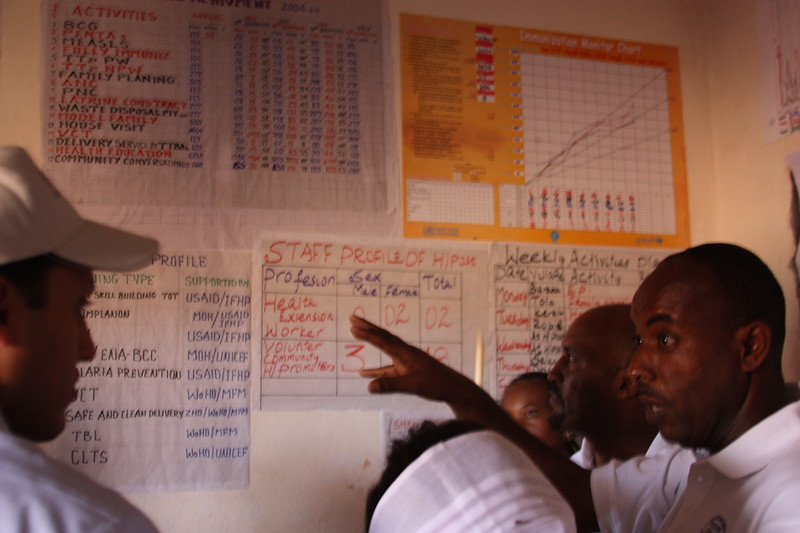I’ve lived a mostly healthy and illness-free life. Still, hospitals are at the center of many of my most important life experiences. I was born in a hospital. Four years later, my sister was born in a hospital, just a couple months before I was there again with a broken wrist. Family and friends have turned to hospitals to manage meningitis, heart attacks, allergic reactions, epilepsy, bike accidents, and mental illness (just to name a few).
This is not unusual in rich countries. But while omnipresent in most of our lives, hospitals are completely missing from the global health agenda.
Related Content
- Consultation draft (PDF): Send your feedback to [email protected] by November 1, 2014.
- Wonkcast with Amanda Glassman.
- Register for Consultation Session on September 30 (Cape Town, South Africa).
In 2010, IHME estimates suggest that only about 5% of all health aid went to overall systems strengthening, and it’s fair to assume that only a tiny fraction of that amount went to hospitals. Donor rhetoric matches those allocations: USAID’s Global Health Strategic Framework mentions the word ‘hospital’ only 3 times within 43 pages (and only in passing), while hospitals are nowhere to be found within the UK government’s 2011-2015 Global Health Outcomes Framework.
As a result, patients in low- and middle-income countries all too often arrive at a facility that is inefficient, unsafe, unaffordable, unaccountable, and/or operating in isolation from other components of the health system (see here, here, and here for just a small sample of the many examples). Each year, an estimated 22.6 million disability-adjusted life years are lost to unsafe hospital care, with two-thirds of that burden borne in low- and middle-income countries. In 14 of 15 countries studied in Sub-Saharan Africa, total out-of-pocket expenses for inpatient care exceed those incurred by outpatients – sometimes by a factor of 4 to 1 as was the case in Kenya. One study showed that one out of every 50 patients entering low- and middle-income country hospitals ultimately died – not as a natural consequence of the disease that brought them there, but instead from preventable complications associated with hospital errors. And in West Africa, we’re now seeing the disastrous consequences of underinvestment in hospitals: too few beds and doctors have forced Ebola patients back home to die (potentially infecting their families in the process), while the lack of protective equipment for infection control has put health workers at risk.

There is some justifiable reluctance to spend scarce resources trying to improve hospitals. Some see hospitals as serving the rich, believing that every dollar spent on hospitals is a dollar not going to primary care, preventative services and low-cost public health interventions. The status quo – largely ignoring hospitals – is also costly; even low-performing hospitals can swallow up to 70 percent of countries’ health budgets. And despite their problems, hospital-centric systems are a common model for health care delivery and are very likely to persist as low- and middle-income countries become wealthier and complete the epidemiological transition, requiring long-term management of chronic non-communicable diseases. While hospitals cannot substitute for scaled and high-quality primary care, they do have an essential role to play in improving population health and achieving Universal Health Coverage – and they do need a home in the global health agenda.
At the Center, we've convened a working group of experts, chaired by our own Amanda Glassman, to conceptualize what the global community can do to foster more safe and efficient hospitals in low- and middle-income countries without crowding out investments in primary care. In its discussions, the Working Group realized that even when national governments and administrators want to improve hospitals, there are few publicly available resources to help them move past the status quo. Missing from the health care ecosystem is a ‘one-stop shop’ for producing, compiling, and sharing essential knowledge about what works in hospitals.
Together, we’ve come up with a proposal for a new initiative to help fill this void: the Global Hospitals Collaborative (GHC). We envision that the GHC would serve as a global knowledge exchange platform for information and technical support, providing low- and middle-income countries (and the donors that support them) with evidence-based policy, data, research, and best practices for hospital management and organization.
We hope you'll check out the consultation draft (PDF) of our report and send your feedback by November 1. Do you have experiences to share, or ideas about what the GHC might do? We’d love to hear it.
We'll also be hosting a public consultation session in Cape Town, SA on September 30 from 9:00 - 11:00am on the margins of the Health Systems Global Symposium. If you're in Cape Town, we hope you'll RSVP here and join the discussion.
Disclaimer
CGD blog posts reflect the views of the authors, drawing on prior research and experience in their areas of expertise. CGD is a nonpartisan, independent organization and does not take institutional positions.





